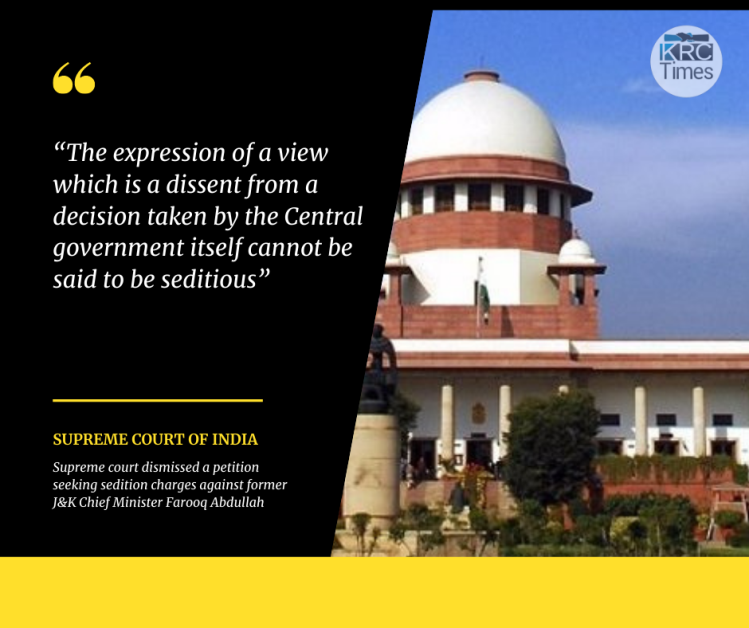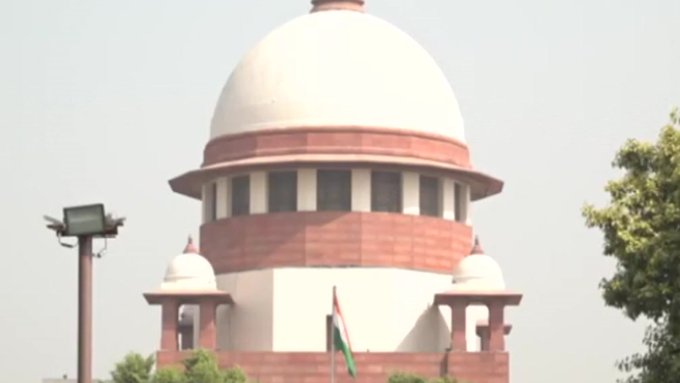The Supreme Court, in its order on Monday, refused to entertain a plea seeking the removal of Arvind Kejriwal as Delhi Chief Minister following his arrest by the Enforcement Directorate (ED) in the liquor case. SC noted that it was a matter of propriety, but there is no legal right
 KRC TIMES National Bureau
KRC TIMES National Bureau

The Supreme Court, in its order on Monday, refused to entertain a plea seeking the removal of Arvind Kejriwal as Delhi Chief Minister following his arrest by the Enforcement Directorate (ED) in the liquor case. SC noted that it was a matter of propriety, but there is no legal right.
“What is the legal right? Why should we go into all this? On propriety (moral or ethical), you may certainly have something to say but no legal right. There may be a propritorial issue relating to Arvind Kejriwal continuing as CM of Delhi despite being arrested, but there is no legal right with anyone to seek a direction from the court to ask him to step down,” a two-judge bench of the top court, led by Justice Sanjiv Khanna and Justice Dipankar Datta, orally told the petitioner and refused to entertain the plea filed by one Kant Bhati.
Refusing to entertain the plea filed by Bhati, the apex court said, “Let the LG take action if he wants to. We were not inclined.”
The bench also pointed out that the petitioner in this present case, who approached the Supreme Court, Kant Bhati, was not the petitioner before the Delhi High Court.
Bhati had approached the SC against the Delhi High Court’s April 10 judgement, which refused to entertain a similar plea by another one, named Sandeep Kumar.
On April 10, the Delhi HC, while dismissing the PIL had also imposed a cost of Rs 50,000 and noted that it was aimed at gaining publicity.
The apex court today said, “We are not inclined to interfere with the judgment. The Special Leave Petition (SLP) is dismissed.”
The plea sought a writ against Kejriwal to show by what authority, qualification, and title he continued to hold the office of the Chief Minister of Delhi under Article 239AA of the Constitution. It further sought the AAP leader’s dislodging from the office of the CM after an inquiry.
The petitioner claimed that Kejriwal, who was in judicial custody over the Delhi liquor policy case, had incurred incapacity to carry out his constitutional obligations and functions under Articles 239AA (4), 167(b), and (c) of the Constitution. Hence, he could no longer function as the Chief Minister.
Promotional | KRC Times






